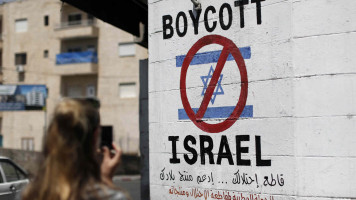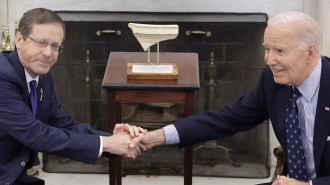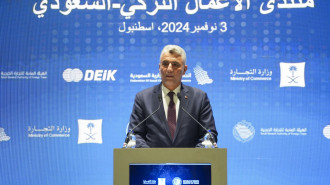US may withdraw support to Saudi Arabia over civilian casualties in Yemen
The US may withdraw or limit its support of the Saudi-led coalition battling Houthi rebels in Yemen, the Pentagon said on Tuesday, over the military alliance's abysmal record of civilian casualties.
Senior officials at the Pentagon are growing increasingly concerned with the extent of collateral damage caused by the Saudi-led coalition in Yemen, according to a CNN report.
Earlier this month, Saudi coalition strikes hit a school bus, killing 40 children.
While the remarks have not been made public, both the Pentagon and the US State Department have allegedly delivered direct messages of concern to the coalition, the report stated.
"Lt. Gen. Garrett delivered a message of concern regarding the recent civilian casualty incident, and on behalf of the US government continued to urge for a thorough and expedited investigation as well as continued emphasis on the reduction of civilian casualties in the Yemeni campaign," Lt Cmdr Rebecca Rebarich, a DOD spokeswoman told CNN.
US support
More than 10,000 people have been killed since the Saudi-led coalition intervened in March 2015 to push back Houthi rebels that overran the capital and other major cities. But the coalition has been plagued with controversies after bombing schools, funerals, markets and weddings, resulting in a large number of civilian casualties.
The US provides intelligence support as well as air refuelling for the coalition.
Earlier this month, local journalists reported that the bomb that killed 40 children and 11 others in a Saudi-led coalition airstrike on a bus in rebel-held northern Yemen was sold by the United States under a State Department deal with Riyadh.
The numbers on shrapnel, of which images were taken shortly after the attack this month, indicate that it was a laser-guided Mk 82 bomb manufactured by defence contractor Lockheed Martin.
Former president Barack Obama banned the sale of precision-guided weaponry to Saudi Arabia after it used a similar bomb in an October 2016 attack that killed 140 people at a funeral in the rebel-held capital Sanaa.
But President Donald Trump overturned that ban after taking office in 2017.
The coalition has promised an internal inquiry but analysts and aid groups have voiced doubt that it is ready to provide the transparency and accountability demanded by the wider international community.
Coalition commanders have admitted a small number of mistakes, but there has been no public disciplinary action or changes to the rules of engagement.
Follow us on Twitter @The_NewArab







 Follow the Middle East's top stories in English at The New Arab on Google News
Follow the Middle East's top stories in English at The New Arab on Google News


